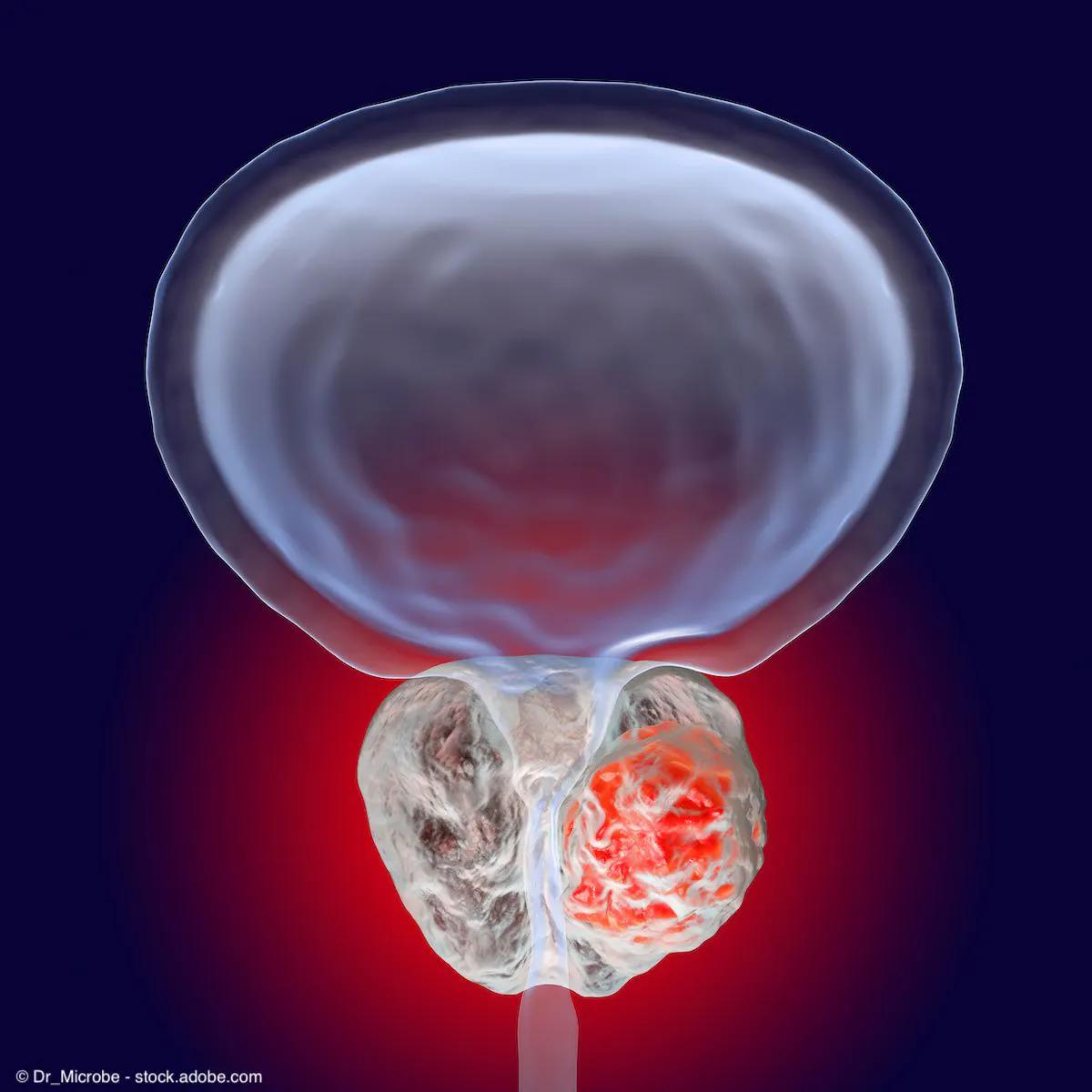News
Article
Trial of ONCT-534 in mCRPC progresses to higher dose level
Author(s):
"We look forward to announcing initial efficacy and safety data from the study, which we expect will be at the end of this quarter," says Salim Yazji, MD.
The phase 1/2 ONCT-534-101 trial (NCT05917470) of ONCT-534, a dual-action androgen receptor inhibitor under investigation for the treatment of patients with relapsed or refractory metastatic castration-resistant prostate cancer (mCRPC), continues to progress with patient enrollment and dosing, according to a news release from Oncternal Therapeutics, the developer of the therapy.1
Patients enrolled in the study will receive ONCT-534 as a single agent administered daily at either the dose level of 40 mg, 80 mg, 160 mg, 300 mg, or 600 mg.

The company reported that the first patient has been dosed in the fourth cohort of the study at the dose level of 300 mg.
Oncternal had previously reported in January 2024 that 1 patient each had been safely treated with 40 mg and 80 mg of ONCT-534 daily, and 2 patients were enrolled in the next dosing cohort of 160 mg daily.2 Data on the patients treated to date supported the advancement to the next dose level of 300 mg, which was approved by the study’s Safety Review Committee.
“Reaching the 300 mg dose level represents a significant milestone for our ONCT-534 program. The drug has been well tolerated so far, and based on preclinical analyses, we are optimistic that study participants are receiving doses of ONCT-534 that may be within the active dose range for antitumor activity,” said Salim Yazji, MD, Chief Medical Officer at Oncternal Therapeutics, in the news release.1 “We continue to see strong demand from investigators and patients to participate in the study and expect to continue enrolling at a brisk pace. We look forward to announcing initial efficacy and safety data from the study, which we expect will be at the end of this quarter.”
The open-label, single-arm, multicenter, phase 1/2 study is evaluating the efficacy, pharmacokinetics, and safety and tolerability of ONCT-534 in patients with mCRPC and relapsed/refractory disease after receiving treatment with 1 or more next-generation androgen receptor pathway inhibitors (ARPIs), consisting of enzalutamide (Xtandi), abiraterone acetate (Zytiga), apalutamide (Erleada), and darolutamide (Nubeqa).
Across phase 1 and 2, the study plans to enroll 59 patients through clinical trial sites in the US. Patients enrolled in the study will receive ONCT-534 as a single agent administered daily at either the dose level of 40 mg, 80 mg, 160 mg, 300 mg, or 600 mg.
To enroll, patients must have an ECOG performance status of 0, 1, or 2; serum testosterone less than 50 ng/dL; and a life expectancy of at least 6 months. A patient’s prostate-specific antigen (PSA) level must be at last 10 ng/mL, or at least 2 ng/mL if they also have had at least a 50% increase from their lowest PSA level on prior therapy. Patients are not eligible to enroll if they have small cell prostate cancer or neuroendocrine disease histology, including mixed histology, or if they have brain or central nervous system metastases.3
In the phase 1 portion of the trial, patients will be assigned to specific dose levels. Based on the results with these dose levels, there will be 2 recommended dose levels chosen for the phase 2 portion of the study. Patients will receive ONCT-543 daily via oral tablets at 1 of the 2 dose levels.
The primary end points for the trial include the determination of a maximum-tolerated dose, safety and tolerability, the proportion of patients who achieve at least a 50% PSA decline, the proportion of patients who achieve at least a 90% PSA decline, and progression-free survival.
The estimated study completion date is January 31, 2028.
In October 2023, the FDA granted a Fast Track Designation to ONCT-534 for the treatment of patients with relapsed/refractory mCRPC that is resistant to approved ARPIs.4 The designation is designed to expedite the review and development of novel treatments that will fill an unmet medical need.
References
1. Oncternal announces first patient dosed in fourth cohort of phase 1/2 study of ONCT-534 for the treatment of R/R metastatic castration-resistant prostate cancer. News release. Oncternal Therapeutics. April 18, 2024. Accessed April 19, 2024. https://investor.oncternal.com/news-releases/news-release-details/oncternal-announces-first-patient-dosed-fourth-cohort-phase-12
2. Oncternal Therapeutics enrolls patients into the third dosing cohort of its phase 1/2 study of ONCT-534 for the treatment of R/R metastatic castration-resistant prostate cancer. Published online and accessed January 8, 2023. https://investor.oncternal.com/news-releases/news-release-details/oncternal-therapeutics-enrolls-patients-third-dosing-cohort-its
3. A clinical study of ONCT-534 in subjects with metastatic castration-resistant prostate cancer. ClinicalTrials.gov. Last updated April 17, 2024. Accessed April 19, 2024. https://classic.clinicaltrials.gov/ct2/show/NCT05917470
4. Oncternal Therapeutics announces FDA granted Fast Track Designation for ONCT-534 for the treatment of metastatic castration-resistant prostate cancer. News release. Oncternal Therapeutics. October 26, 2023. Accessed April 19, 2024. https://investor.oncternal.com/news-releases/news-release-details/oncternal-therapeutics-announces-fda-granted-fast-track
Newsletter
Stay current with the latest urology news and practice-changing insights — sign up now for the essential updates every urologist needs.















